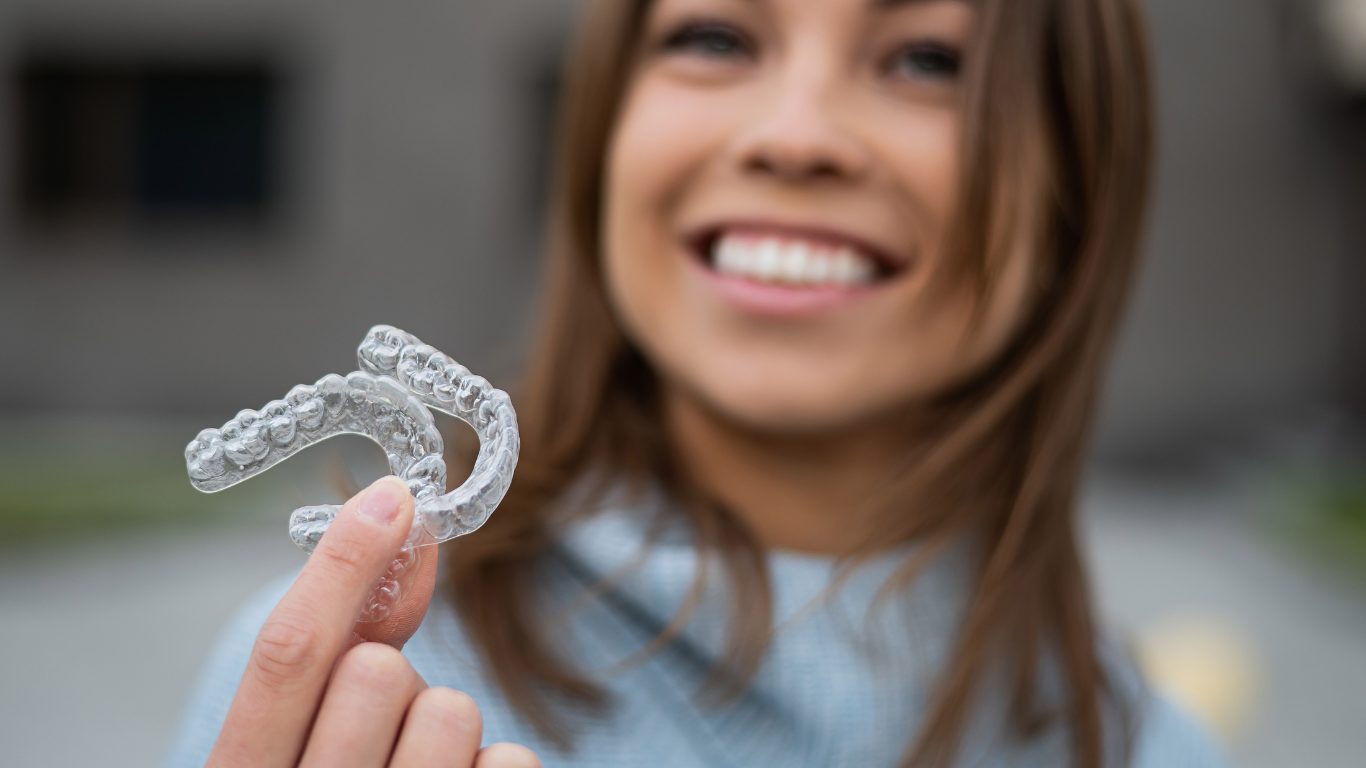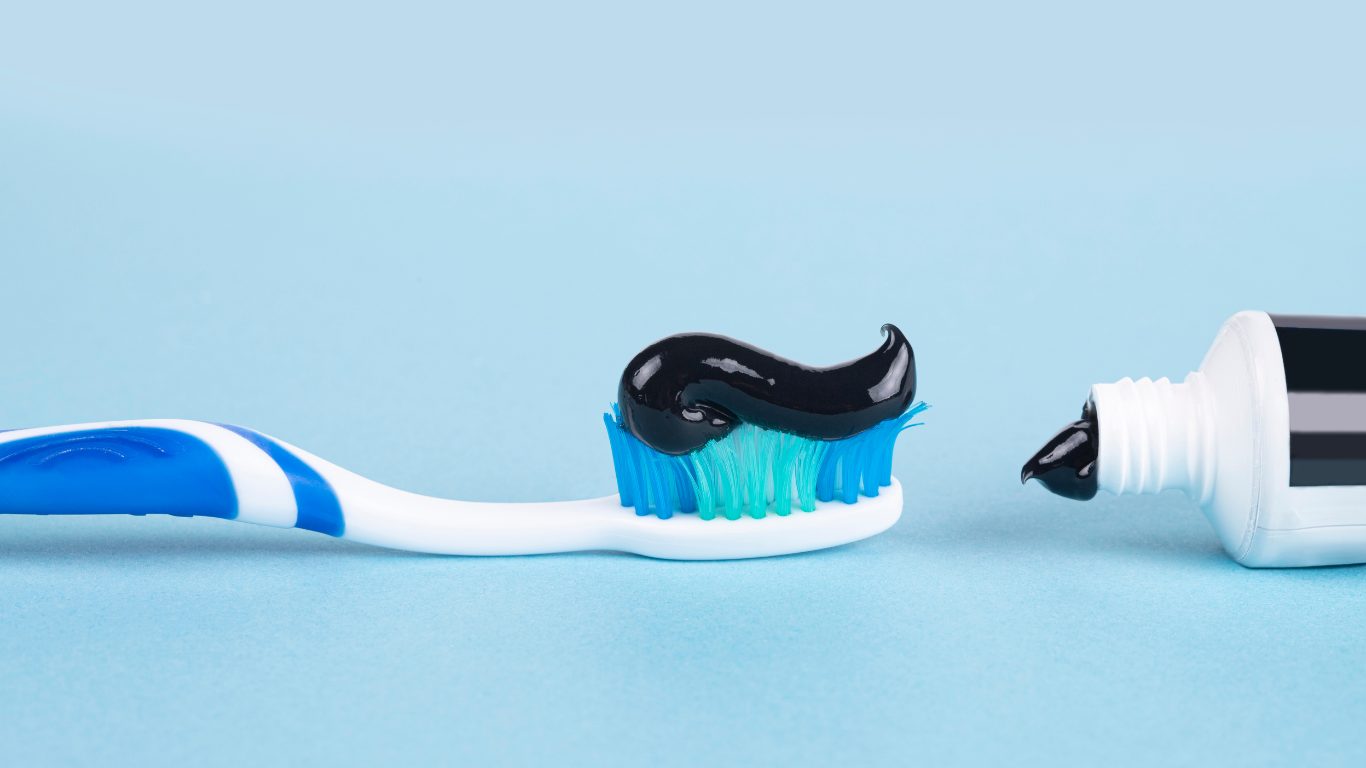
Can I Get Invisalign If I Grind My Teeth?
June 30, 2023
Our Top Cosmetic Dentistry FAQs
July 31, 2023Key Takeaways:
Effectiveness is Limited:
Charcoal toothpaste may help remove surface stains but does not effectively whiten teeth beneath the enamel. Its whitening claims are often exaggerated, and results vary based on the type of stain.
Potential Risks:
The abrasive nature of charcoal toothpaste can damage tooth enamel, leading to increased sensitivity or weakened teeth. Its regular use is not recommended without professional guidance.
Consult a Dentist First:
Before using charcoal toothpaste, it’s essential to consult a dentist. They may recommend safer and more effective alternatives, such as professional cleanings or whitening treatments tailored to individual needs.
Charcoal toothpaste is popular; thanks to wellness bloggers and influencers, you may wonder, “Does charcoal toothpaste whiten teeth?”
As dentists, we aim to provide accurate information to our patients and the Charlotte community to assist you in making healthy choices. This article is not a substitute for dental care; it is purely for your information. Always talk with your dentist for more personalized advice tailored to your specific needs.
What Charcoal Toothpaste Fans Say
Charcoal toothpaste contains activated charcoal. Activated charcoal is chemically treated, resulting in extra absorption ability. It can absorb food particles and bacteria. Fans of charcoal toothpaste report stain removal and whiter-looking teeth. Some fans attribute other benefits to activated charcoal and charcoal toothpaste.
Science Line describes how activated charcoal is made by burning material like coconut shells, sugar, bones, coal, peat, or others. Next, the charcoal is activated by heating it to temperatures between 1,100 to 1,600 degrees Fahrenheit.
Not only are there DIY treatments on social media platforms like TikTok, but some commercial toothpaste contains activated charcoal. Sometimes people believe that if something is natural, it is automatically better than mainstream products. When making these decisions, it is essential to consider the evidence.
Is Charcoal Toothpaste Safe and Effective?
The big questions are whether charcoal toothpaste is safe and whether it removes stains and whitens the teeth.
Charcoal sometimes does remove surface stains which can result in whiter-looking teeth for some people. But the downside is it is somewhat abrasive, so there is a risk of eroding tooth enamel. We don’t recommend the unproven and risky DIY charcoal treatments you may find online. If you want to incorporate charcoal, please discuss it with your dentist first to ensure you don’t damage your teeth, especially if your enamel is already weakened.
Next, let’s look at the claim that it whitens teeth. The Journal of the American Dental Association reviewed existing scientific research about the benefits and risks of using charcoal toothpaste. The results varied from study to study and were inconclusive about whether charcoal whitens the teeth. More research is needed to establish whether activated charcoal effectively absorbs stains from the teeth.
Choosing a Safe and Effective Toothpaste
If you want to use Charcoal toothpaste, we encourage you to look for one from a well-reputed brand with the American Dental Association (ADA) Seal of Acceptance. The ADA has specific criteria for toothpaste that are both beneficial and somewhat safe. These criteria include:
- The toothpaste that contains fluoride
- It needs to be rated by the ADA as having a Relative Dentin Abrasivity (RDA) scale under 25
- It shouldn’t contain any ingredients like sugar that cause tooth decay.
- There are additional standards for including ingredients that are proven to be beneficial and not too damaging.
- The product data is submitted to the ADA’s Council on Scientific Affairs and meets the safety and efficacy requirements.
Toothpaste contains abrasive ingredients like enzymes, modified silica abrasives, or calcium carbonate. However, charcoal is usually more abrasive than the ingredients used in most mainstream toothpaste brands.
A dental hygienists journal Today’s RDH also reviewed the existing literature and studies about the safety and efficacy of charcoal toothpaste. They noted that usually, it is more abrasive than regular whitening toothpaste. The level of abrasiveness varies by how finely powdered the charcoal is. Still, it doesn’t seem worth the risk when you consider the whitening benefits remain unproven, and it is more risky to your tooth enamel than professional teeth whitening treatments.
If all this seems a little confusing, you are not alone. More research needs to be done to determine whether any benefits of charcoal toothpaste outweigh the risks and which formulation is most effective. We always encourage people to talk with their dentist about any oral hygiene products they plan to use.
Your tooth enamel is precious. It happens to be the hardest substance in your body, and it protects your teeth. Abrasive items, acids, and grinding or other trauma contribute to enamel erosion, making the inner tooth vulnerable to decay, gum disease, and infection. If you already have weakened enamel from chronic drinking, drinking coffee, or any number of other causes, then using very abrasive toothpaste may add insult to injury.
Schedule Your Dental Appointment
When navigating these choices, it helps if you see your dentist twice a year as recommended. During your annual dental examination and professional cleaning, you have the opportunity to reassess your oral hygiene habits, including the products you use.
Your dentist can help you consider your personal risk based on your lifestyle, existing issues, and the condition of your teeth.
Rather than rely on charcoal or whitening toothpaste, we recommend our patients stay consistent with their oral hygiene. A healthy lifestyle for your teeth and gums involves:
- See your dentist as scheduled and whenever you have oral health issues.
- Gently brush your teeth twice a day using a soft-bristled toothbrush.
- Use a toothpaste that contains fluoride and has the ADA seal of approval.
- Floss daily.
- If you grind your teeth or clench your jaw, use a mouth guard to protect your teeth while sleeping.
- Keep acidic foods and drinks to a minimum. These include coffee, wine, tomato sauce, and high-sugar foods. Limit them to meals where you can gently rinse your mouth and brush your teeth within about 30 minutes of finishing the meal.
- Sip plain water throughout the day; this helps moisturize your mouth and dilutes sugars and bacteria between brushing your teeth.
- Get your dentist’s advice about treatments you want to seek, including tooth whitening, stain removal, or anything else that may be risky.
Southview Dentistry proudly serves the Charlotte area community through cosmetic and preventative health dentistry. If you live in the area and need a dentist, feel free to contact us to schedule an appointment.




